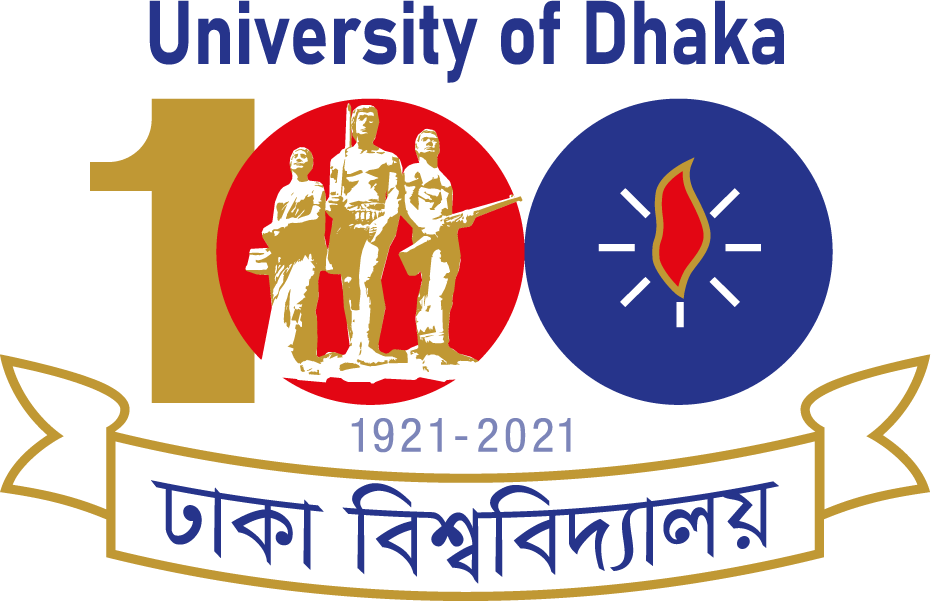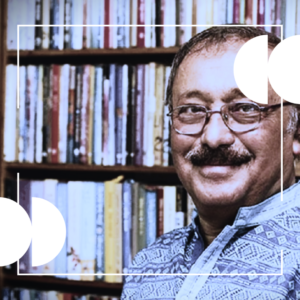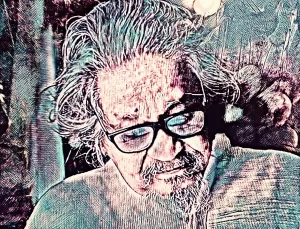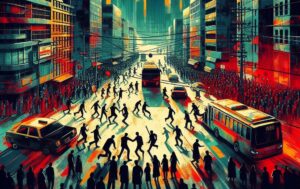
From the website of the University of Dhaka
After the liberation war, Bangladesh witnessed the formation of as many as nine education commissions that began with the National Education Commission set up in July 1972. The appearance of the nine commissions in the past 50 years — a new commission every five and a half years — indicates that parties in power suffered from some edginess, mainly, to ensure the political legitimacy and the support of the youth.
Of all the commissions, the report of the 1974 National Education Commission is unique mainly for two reasons.
First, it viewed higher education in the perspective of a value-laden integrated framework of learning and research that is reflected in the title of the relevant chapter — ‘Higher Education and Research.’ More importantly, the narratives of the report on the aim and objective of higher education incorporate research as one of the fundamental components of knowledge production, as it targets ‘to open up [a] new horizon of knowledge through research….’
The reports published by the Commission for Developing National Curricula in 1976 and the Syllabi and National Education Advisory Committee in 1978 were founded on the integrated framework of higher education and research as adopted by the first education commission. On the contrary, the commissions set up in 1988, 2001, and 2003 explain higher education in their reports more in technical and conservative terms devoid of declared values; and the word ‘research’ was missing from the title of the chapter. The 1997 and 1999 reports followed the same outline, with some officially declared values like secularism, communal harmony, liberty, humanity and progressiveness. But the two reports do not accept these values as basic premises of higher education the way the first education commission report of 1974 did.
Second, the 1974 report illustrates the role of higher education with a definite set of guidelines. For instance, it aims to ‘prepare competent, knowledgeable and far-sighted people for assuming various higher responsibilities, to create such an educated group in who the attachment to work, love for learning, freedom of thought, a sense of fairness and the humanitarian instinct are fully developed….’ Again, in explaining the added responsibility of higher education, the Qudrat-e-Khuda report emphasises the importance of instilling qualities such as spirited activity, active learning, honesty and a sense of justice in the minds of the students for resolving social problems. The other reports published till now since the 1980s do not have this feature.
Higher education and personal anecdotes
Depending on the distinctive features of the 1974 report narratives on higher education as already discussed, I, both as a student and a teacher, consider three elements that include research, academic syllabus, and the freedom of thought to be vital for narrating the personal account of two different periods on the issue.
I must admit that infrastructural development, the recruitment of both qualified teachers and students and residential arrangements are also important issues in assessing the state of higher education in a public university. But I still like to side with the three elements that I have picked up from the 1974 report for the latter’s comprehensive and value-laden understanding of higher education.
Research
When I was a student at the Department of International Relations in the University of Dhaka in the early 1990s, I did not find any course on research methodology on offer for our bachelor’s course nor we had any research component even at the master’s level. As a result, we could not realise the importance of undertaking a research project for a post-graduate degree. As the story goes, the department removed the research methodology course because students with a science background at the HSC level performed better in the course. I still imagine how it could happen when the preamble to the Dacca University Order 1973 begins with an avowed commitment to ‘… improving teaching and research.’ I am not certain about the experience of other departments of the university regarding research during our time.
When I went to the University of Warwick to pursue another MA degree in international political economy, I came to know of the gravity of having a research component in an academic course. For the first time I became aware of plagiarism and the importance of writing a thesis for completing a post-graduate degree. On the first day at Warwick, the course teacher gave us an impression that the course was not for all the graduates and they tailored the syllabus mainly for prospective PhD applicants. We were only 20 in the class. In fact, in the preparation of the students for PhD research, we attended seminar-based lectures all round the academic year and wrote nine essays as part of the evaluation. The students had to make a presentation in each class, by turn, on specific topics covered by the syllabus. We had a separate unit of undertaking research independently under designated supervisors. Students could apply for a research grant if the proposed research involved extensive fieldwork depending on the quality of the research proposal.
Now the students of the department are fortunate compared with our time. In our department, two courses on research methodology — qualitative and quantitative — are offered. But we still struggle to find an appropriate teacher for quantitative research in social sciences. We employ a part-time teacher, either from the Department of Statistics or from the Institute of Applied Statistics, in most cases. However, it is not easy for a faculty member to teach the course in a bachelor’s classroom with more than 100 students. In some other departments such as political science and sociology, they have more than 200 students. If all the students attend the lecture, it becomes difficult to accommodate all of them.
As part of the bachelor’s and master’s courses, the students require to undertake research projects equivalent to other unit courses. The department does not allow all the students in research as it is not easy to supervise more than 100 students in one batch. Depending on semester results, only top students can get into research. But the department does not have an institutional mechanism to check against plagiarism. Nor has it any research ethics committee. The good news is that the university administration has now decided to have such a committee and it appears to have been aware of plagiarism checks for making research papers more credible. However, the university authority still has a long way go to give serious attention to M Phil and PhD degrees. The university authorities require a higher research degree in the office of each faculty. The university needs to have the provision for funding too.
However, the university has been offering Bangabandhu overseas scholarships for lecturers and assistant professors to undertake post-graduate studies and PhD research in foreign universities. This is an initiative much appreciated by the teachers of the university. On the contrary, it is an indication that the university has not developed its capacity to enrol the junior faculties in the PhD programme.
Many junior teachers feel that if they do a PhD at the University of Dhaka, they will lose their academic and social credibility. If it is the ground reality, why is the university not recruiting teachers with credible PhD degrees? It will also allow the newly appointed teachers to spend more time on teaching and research. They will not have to take long leaves for studies abroad. The university can use the funding of the he Bangabandhu scholarship to build its research capacity. It can also offer post-doctoral fellowships in collaboration with other foreign universities.
Academic syllabus
During our time at Dhaka University, we had to take a total of eight courses for three-year bachelor’s (honours) degree. The most interesting part of the syllabus was the option for us to take two subsidiary courses in other departments in the first and second years. I had economics and English language as subsidiary courses. In the first year, we had one core course offered by the department. So, first year was pretty fun. We only needed to pass the subsidiary course before we completed the degree. There was also uniqueness about the syllabus of our department. We had to pass a certificate course in a foreign language at the Institute of Modern Languages within the three years of the bachelor’s course. For the one-year MSS programme, we had to take four courses.
With the introduction of four-year integrated (honours) course system from the session 1997–1998 and the semester system from 2007–2008, there was a major shift in the syllabus of the departments under the faculty of social sciences. The students required to study a total of 32 course units that include 30 taught course for completing the BSS degree course. The same applies to the MSS course. A student takes a total of eight course units that include research project and comprehensive viva, among others. The course in the foreign language is now compulsory and offered internally.
More interestingly, to add a different taste to the MSS course, the department has introduced five streams of learning such as international relations, security studies, international political economy, South Asian studies, globalisation and governance for the specialisation of students in different areas of study. These all are good initiatives, indeed, in comparison with our time.
But some issues of concern remain unaddressed, making the management of the semester system difficult. First, the academic calendar having so many government holidays and institutional vacations and other unofficial closures of the university, teachers do not get more than three months to finish a semester with a six-month duration. Broadly speaking, we remain busy taking the required tests, presentations and examinations without concentrating much on the learning of the students.
There is also a lack of reading materials for all the courses. A significant number of students also ask for books in Bangla that we cannot always give them. We rarely translate our textbooks. Many of the teachers do not want their students to study the subject in Bangla. The first-year students coming from different socio-economic backgrounds are not all equally competent in English. Many of them feel disconnected from and cannot internalise the subject matter of the discipline that they study. Many of them lose interest in getting serious about academic studies. Some of them prefer getting prepared for the BCS examinations from the first year. Neither the university nor the department has any scheme to address the issues of first-year students. The first year of an academic calendar is vital for the future of a bachelor’s student in a university.
The classrooms become crowded with students more than their capacity causing inconvenience for learning and teaching. If a teacher does not get the scope for interacting with all the students in a classroom and remain busy giving a monologue, learning at the tertiary level becomes difficult and boring for students. As a result, the quality of teaching and research also suffers. The inclusion of new courses in the syllabus of a department does not confirm that the quality of higher education has experienced a jump. It requires some other issues to be taken care of, as already discussed.
Again, the formulation of the Strategic Plan for Higher Education: 2006–2026 by the University Grants Commission with financial loans and technical support from the World Bank witnessed the implementation of the Higher Education Quality Enhancement Project (HEQEP) over the past decade. While suggesting courses and curriculum, consultants of this project observed that the departments of literature, philosophy, and pure science have ‘little linkage with the available market and real-life situation.’ They recommend that higher education should address the ‘needs of industries and business at home and abroad.’ Under such a project, the department revised its courses and curriculum and some of the teachers visited some selected foreign universities to make themselves aware of their teaching and learning. Several consultants also visited the department and evaluated its institutional and academic contribution to work out a road map. This project, indeed, helped the department develop its computer lab. The department also purchased an expensive electronic whiteboard that we have never used.
The HEQEP implementation in the university has also brought about an institutional change. The university has established the Institutional Quality Assurance Cell-DU for the evaluation of the quality of education, governance and research. Such a cell is fraught with a set of weaknesses. First, the administrative structure of the university ensures that a teacher loyal to the ruling party runs the cell. Under the circumstances, it will not be easy for the teacher to discharge the duties objectively. Second, the cell often overrides the role of the academic council and other relevant organs. It does not appear to be legally consistent with the Dacca University Order 1973.
Freedom of thought
When we were students in the 1990s, teachers taught us two or three academically critical courses such as ideologies in world affairs, Bangladesh in international affairs and international political economy and trade regimes. The course teachers were sharply critical of the global politics and the foreign policy of Bangladesh. I recall how one of our teachers was so ruthless in criticising the governments and the Armed Forces in lectures on the emergence of insurgency in the Chittagong Hill Tracts. It appeared that the teachers were enjoying their freedom of expression in the classroom.
The situation has changed now. When I came back in 2013 after doing my PhD, coinciding with the Shahbagh movement and a surge in border killings, I found that the teachers were not comfortable talking critically about religion and Bangladesh-India relations. Even some of the colleagues did not prefer teaching the course on the politics of religion. A kind of self-censorship seems to have prevailed over. Even when I referred to hijab for a particular discussion, one of the students in the classroom suggested that I should not talk about it. Discussions on religion appear to have become a taboo in the classroom.
The residential students often face backlash if they express anything critical or press the Like button on a Facebook posting supporting a critical view. The student wing of the ruling party always keeps them under vigilance for their offline or online activities.
The situation has worsened with the promulgation of the Digital Security Act 2018. With so many arrests around, particularly during this pandemic, we do not feel comfortable taking online classes and record the lectures for security reasons.
The self-censorship now extends to government affairs and in most cases, the teachers appear to have become conformist to a large extent. In a meeting of the Faculty of Social Sciences early March 2021, we were assessing an M Phil research proposal. The proposal was on the Rohingya refugee crisis. Almost all of the professors argued that the applicant must not call the Rohingyas refugees because the government does not recognise them. One professor even went one step ahead in this regard, suggesting that the teachers should follow the Ministry of Foreign Affairs in identifying the Rohingyas as the ‘stateless’ or the ‘displaced’.
However, the Digital Security Act or growing fears to openly talk about religion is not the only reason for self-censorship. It now appears that the Bangabandhu overseas scholarship programme also prevents aspirant teachers from raising their voice against the wrongdoings taking place within and outside the university. With overseas funding for higher research degrees drying up, young teachers depend more on the scholarships internally offered. Their reliance on internal funding will increase further in the context of the new reality that is brought about by the COVID-19 outbreak. So, the freedom of expression in the university will for certain experience a further jolt in the coming days.
The personal anecdotes that I described here indicate that the education offered at the university has many positive and negative sides. I think it is not also fundamentally different from what it is in other public universities. This micro-analysis of higher education indicates that the quality of higher education depends on the quality of governance at the university and in the state. The World Bank has its market-oriented agendas and its involvement may help the universities improve many aspects of higher education. But if the three elements are not taken into account based on ground realities, higher education will reach nowhere. It will remain in limbo. And it matters little how many years a university has passed by in its institutional evolution.
(This write up was first published in the Daily New Age on 26 March 2021, available at: http://www.newagebd.net/article/133701/higher-education-in-a-public-university)





